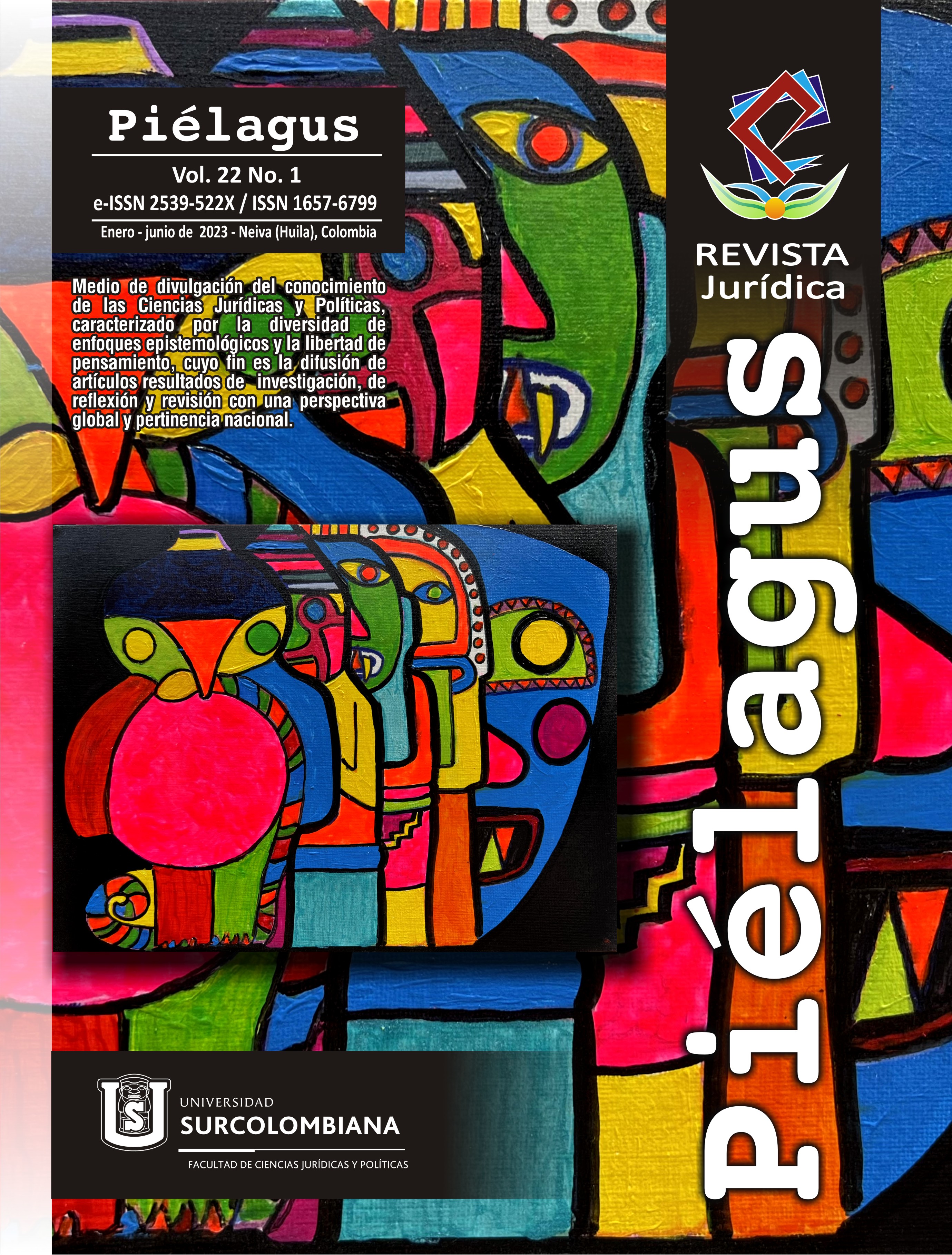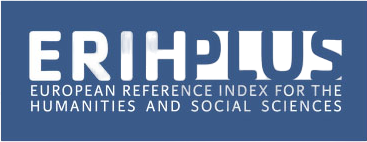A Conceptual Approach to Biocultural Rights: Origin and Consolidation
Una Aproximación Conceptual a los Derechos Bioculturales. Origen y Consolidación
##plugins.themes.bootstrap3.article.main##
Currently, environmental movements are strengthening their discourse on protecting ecological rights and the environment, gaining increasing recognition in constitutional charters and, in some cases, through judicialization in various countries. A new concept is emerging that views the environment and ecosystems not merely as objects of care but as central elements in developing communities and societies. The 21st century has witnessed severe environmental degradation caused by human activity, prompting a thorough analysis of the available alternatives for environmental protection and the restoration of damaged ecosystems.
As a science, law is not immune to these issues and must integrate with other fields of knowledge to find global solutions that affect all humanity and commit future generations. There is an ongoing debate about a new category of rights, which is not limited to humans but could also include inanimate elements of nature, based on the growing arguments on the subject.
A new category of rights is being developed that considers nature as a rights-bearing subject, deepening our responsibility for using natural resources and our intervention through legal principles to defend this common good. The current discussion on ecological rights has been more reactive than preventive, primarily arising from the need to restore ecosystems that have already collapsed due to resource exploitation and pollution.
Examples such as the Whanganui River in New Zealand, the Ganges River in India, and the Atrato River in Colombia illustrate the initial steps toward recognizing the rights of rivers, opening debates about their legal validity. The drive to develop and define this new category of rights comes from academic and scientific fields, expecting that research will lead to solid argumentative bases and robust scientific results.
This approach has national and international implications, including determining protective actions, identifying legitimately interested parties, and reviewing the effectiveness of related judicial decisions. In summary, this document explores the emergence and application of biocultural rights, considering the complexity of 21st-century climate and ecosystem changes, along with the emergence of the concept of the “Anthropocene” and new visions of “nature-culture”, in the pursuit of climate justice within a global legal framework.
Downloads
##plugins.themes.bootstrap3.article.details##
Amiel, S. (9 de agosto de 2019). ¿Quiénes son los pueblos indígenas de Europa y cuáles son sus luchas? Euro News.
Bavikatte, K. S., & Bennett, T. (2015). Community stewardship: the foundation of biocultural rights†. Journal of Human Rights and the Environment, 6(1), 7-29. https://doi.org/10.4337/jhre.2015.01.01
Bogojevic, S. (2019). Human Rights of minors and future generations: Global and EU enviromenmental law particularities. Reciel, 29(2), 191-200.
Cecchetto, S. (2007). ¿Una ética de cara al futuro? Derechos humanos y responsabilidades de la generación presente frente a las generaciones por venir. Andamios, 3(6).
Cambrón, A. (2022). Generaciones futuras. Disponible en: https://enciclopedia-bioderecho.com/voces/165
Carnelutti, F. (2006). Metodología del Derecho. Ediciones Leyer. Bogotá (Colombia)
Ensabella, B. (2015). Derechos de la naturaleza. Ética biocéntrica y políticas ambientales. Revista Latinoamericana, 15(43), 683-688.
Gaona, G. (2013). El derecho a la tierra y protección del medio ambiente por los pueblos indígenas. Nueva antropología, 26(78), 141-161.
Glosseries, A. (2008). On future generations´ Future Rights. The Journal of Political Philosophy. 16(4), 446-474.
Gudynas, E. (2011). Los derechos de la naturaleza en serio. La Naturaleza con Derechos de la Filosofía a la Política, 239-286.
Gutiérrez, E. (2007). De las teorías del desarrollo al desarrollo sustentable. Historia de la construcción de un enfoque multidisciplinario. Trayectorias, IX (25), 45-60.
Hottois, G. (2006). Generaciones futuras. Diez palabras claves en nueva genética. Editorial Verbo Divino; 1er edición.
Latour, B. (2014). Anthropology at the Time of the Anthropocene. A Personal View of What Is to Be Studied (ponencia). American Association of Anthropologists. Washington. http://www.bruno-latour.fr/sites/default/files/139-AAA-Washington.pdf
López-Quiroz, A. (2014) Generaciones futuras y personalidad jurídica. Díkaion, 23(2), 251-275.
MacFarlane, K. (1998). Los Derechos Humanos de las Generaciones Futuras (La contribución jurídica de J. Cousteau). Última Década, 6(8), 145-165.
MacKenzie, John M. (1988). The Empire of Nature: Hunting, Conservation and British Imperialism. Manchester, New York: Manchester.
Munévar Quintero, C. (2016). Los sujetos de las futuras generaciones: ¿quiénes son los titulares de derechos intergeneracionales ambientales? Revista de ciencias humanas y sociales, 32(79), 184-196.
Murcia, D. (2011). El Sujeto Naturaleza: elementos para su comprensión. En A. Acosta y E. Martínez (Coord.), La Naturaleza con Derechos (pp. 287 – 316). Ediciones Abya-Yala.
Ovares, S. y Torres, I. (2016). Las comunidades indígenas: Una forma de vida que pone en práctica la Carta de la Tierra. Revista Electrónica Educare, 20(2),1-15.
Sachs, J. (2021). Las edades de la globalización. Deusto.
Sajeva, G. (2019). When rights embrace responsibilities: Biocultural rights and the conservation of environment. Oxford Academic. https://doi.org/10.1093/oso/9780199485154.001.0001
Saruwatari-Zavala, G. (2009) Origen del Concepto de Generaciones Futuras en el Derecho Internacional de los Derechos Humanos. Revista del Centro Nacional de Derechos Humanos, 4, 29-56.
De Sousa Santos, B. (2014). Democracia al borde del caos: ensayo contra la autoflagelación; traductor Jineth Ardila Ariza. Bogotá: Siglo del Hombre Editores y Siglo XXI Editores.
CConst, T-622/2016, M. P. J. Palacio. (Corte Constitucional, 10 noviembre de 2016).
CConst, T-361/2017, M. P. A. Rojas. (Corte Constitucional, 30 de mayo de 2017).
Constitución Política de Colombia [Const.] (1991). 43ra Ed. Legis.
Decreto 1753 de 1994 [con fuerza de ley]. Por el cual se reglamentan parcialmente los Títulos VIII y XII de la Ley 99 de 1993 sobre licencias ambientales. 3 de agosto de 1994. D. O. No. 41427.
Decreto 2150 de 1995 [con fuerza de ley]. Por el cual se suprimen y reforman regulaciones, procedimientos o trámites innecesarios existentes en la Administración Pública. 5 de diciembre de 1995. D. O. No. 42.137.
L.99/1993. Ley 99 de 1993. Por la cual se crea el Ministerio del Medio Ambiente, se reordena el sector público encargado de la gestión y conservación del medio ambiente y los recursos naturales renovables, se organiza el Sistema Nacional Ambiental, SINA, y se dictan otras disposiciones. Diario Oficial No. 41.146. (1993).
L.491/1999. Por la cual se establece el Seguro Ecológico, se modifica el Código Penal y se dictan otras disposiciones.

















